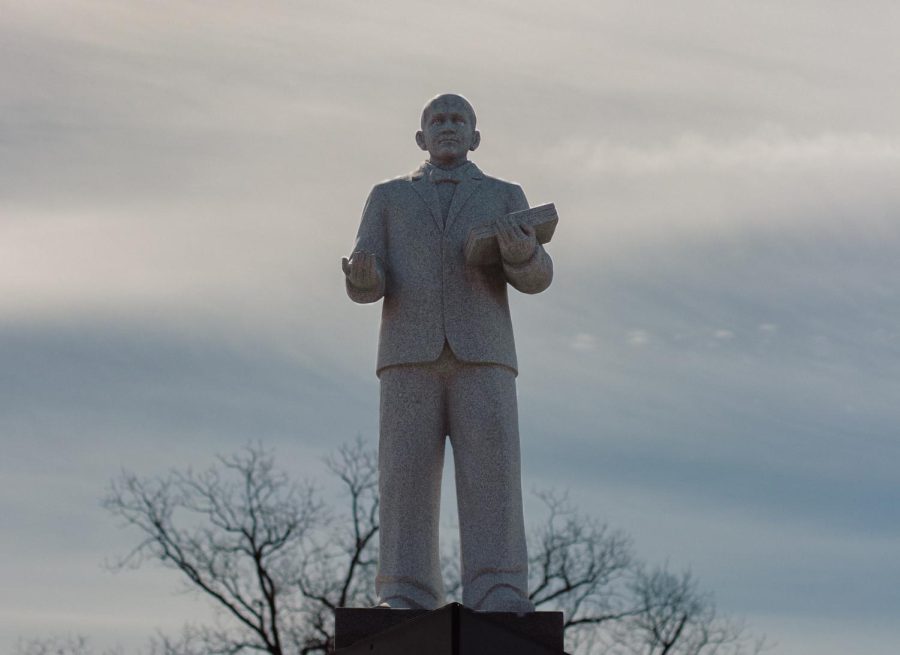Do we need a Black History Month?
There are appropriate ways to introduce Black history into discussions about history. It is time to rewrite textbooks and update the curriculums. Black history is American history, and it will always be.
It has been 53 years since Black History Month was declared an official annual observance in the United States of America, and people are still unaware of the importance of the observance. It is not surprising to see that a middle school in New York is facing backlash for serving its students a stereotypical lunch, consisting of chicken and watermelon. There are many examples online of public schools making insensitive choices during Black History Month. It will continue to happen if Black history is only taught for 28 days out of the year.
Growing up in the public school system, the curriculum and activities throughout Black History Month were redundant. Civil rights activist Martin Luther King Jr. remained a consistent figure in class discussions. I vividly remember watching the animated educational film, “Our Friend Martin” at least three times in elementary school. Every time I was left sad knowing the unrightfully outcome of Martin when he returned to his time. Along with Martin Luther King Jr., there were Harriet Tubman and Rosa Parks. Every year we learned about the same Black historical figures. While they played a substantial role, they only represented a small percentage of Black Americans contributing to Black history.
The information taught on Black history in public school was kept at a minimum. I would not learn that Rosa Parks was not the first person to refuse her seat for a white passenger until college. Years of the same Black figures, and yet there are still misconceptions about their involvement in Black history. To this day, I still hear people say, “Martin Luther King Jr. died for this.” It pains me. It irritates me, but I do not blame them entirely. It was what we learned. It was what we were taught. Martin Luther Jr. was not a sacrifice to end all injustice amongst Black people, he was murdered.
Black history is viewed as a sensitive topic. Parents are writing letters to have their children opt out of learning Black history. As a kid, the lessons taught during Black history month did not compare to the lessons on the Holocaust. In my sixth-grade reading class, I read the “Diary of Anne Frank.” The following year, in seventh grade we read the “Boy in the Striped Pajamas,” along with various films and documentaries. Was it horrifying for 12-year-old me to see malnourished bodies piled together waiting to be burned? Yes, it was horrifying. Many of my classmates cried at the cruelty Jewish people faced. We were not given a watered-down version of what occurred during the Holocaust. If middle schoolers can learn about the Holocaust, they can learn about Black history.
The lack of Black history being taught to young Black Americans is what led scholar Carter G. Woodson to create “Negro Week.” In 1926, 50 years before Black History was declared a national holiday in 1976, Woodson created the week to preserve the history of Black Americans. He wanted to ensure that young Black Americans were educated on Black history. Negro Week began on the second week of February coinciding with the birth of Abraham Lincoln and Fredrick Douglass. Woodson expressed that he did not want to limit the holiday to a week, but to integrate it into an entire year. He set the foundation in hopes that Black history would be learned outside of February. Woodson believed that the holiday would come to an end, and Black history would be incorporated into the history taught in schools. Almost a hundred years later, and Black history is mainly taught during February.
As of now, Black History Month is still needed. America is refusing to educate its children on the proper history of Black Americans. There are appropriate ways to introduce Black history into discussions about history. It is time to rewrite textbooks and update the curriculums. Black history is American history, and it will always be.
(March 2, 2023: The Current Sauce has edited an aspect of this article to reflect changes in fact-checking.)

Samuel Bailey is a senior fine and graphics arts major. This is his second year in The Current Sauce as the Public Relations Manager. Samuel is a multifaceted...





























